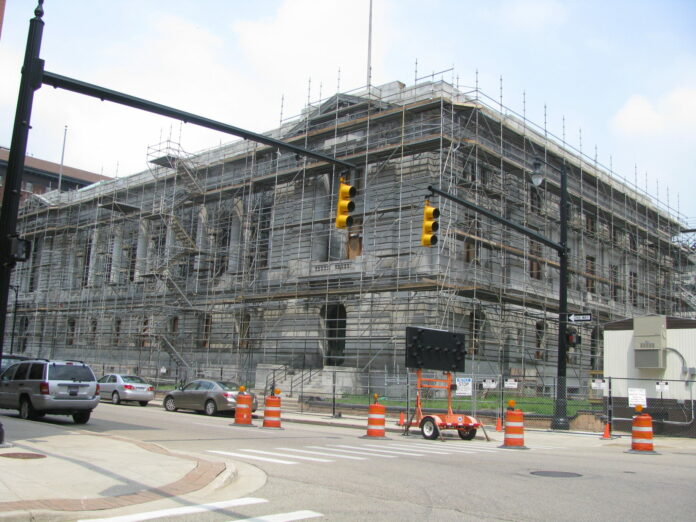Photo credit: DiasporaEngager (www.DiasporaEngager.com).
- Chronic instability plagues the existing power grids, worsened by the pressing need to connect growing populations.
- The advent of renewable energy sources introduces new complexities, considering the intermittent nature of solar and wind power generation.
- Wärtsilä Energy says deploying battery storage and flexible engine power plants offers a pathway toward reliable grid resilience.
Across economies in Africa, a profound transition is underway. Increasingly, economies are grappling with the dual challenge of meeting burgeoning energy demand while steadily transitioning towards sustainability, a scenario that amplifies the importance of economies having reliable power production.
Wärtsilä Energy, a giant power plant manufacturer and energy systems integrator in Africa, is coming forward to offer insights on how economies can easily navigate this transition. Drawing insights from the 2024 North and West Africa Energy Transition Forum in Rabat, it is evident that addressing the complexities of grid reliability and renewable energy integration requires a multipronged approach.
The dilemma of grid reliability amid energy transition
Marc Thiriet, Africa Energy Business Director at Wärtsilä Energy, articulates the pressing issue facing grid operations across the continent. Chronic instability plagues the existing power grids, worsened by the pressing need for accelerated development to accommodate escalating electricity demand from the rising populations. Moreover, the advent of renewable energy sources introduces new complexities, considering the intermittent nature of solar and wind power generation challenging traditional grid management practices.
“The region’s power grids are under great stress, with permanent constraints leading to chronic instability,” explained Marc Thiriet. “At the same time, they need to be developed at a rapid pace to cope with the expected increase in demand for electricity, which is increasingly coming from renewable energy sources. Grids, which already have to adapt to highly fluctuating demand downstream, will also have to manage an increased volume of intermittent solar and wind power generation upstream, which will make grid management work much more complex.”
To navigate this challenge, the augmentation of flexible electricity generation is one of the solutions that Wärtsilä Energy highlights. Balancing technologies such as the deployment of battery storage and flexible engine power plants, offer a pathway toward reliable grid resilience. While battery storage power garners considerable attention, the role of balancing engine technology remains a somewhat underappreciated yet indispensable option.
Engine power plants, such as the Tan-Tan plant in Morocco, go a long way in demonstrating efficiency and agility in responding to dynamic electricity demand and persistent fluctuations in renewable energy generation. Their ability to ramp up and down positions them as critical linchpins in the integration of renewable energies into the grid, greatly mitigating the challenges posed by intermittency in power supply.
Sustainable fuels: catalysts for decarbonization
According to Marc Thiriet, “Today’s energy choices commit us for decades to come. This is why electrification strategies must be considered over the very long term on the basis of in-depth analyses, which must also fully integrate the major technological evolutions that are emerging, such as the emergence of sustainable fuels.”
Central to the long-term sustainability of Africa’s energy generation and supply is the adoption of sustainable fuels. Martial Claudepierre, Senior Expert in Sustainable Fuels at Wärtsilä Energy, says emerging technologies, particularly hydrogen, have a transformative potential.
Engineered to accommodate a variety of fuels, including biomethane and hydrogen, balancing power plants represent a flexible foundation for transitioning toward decarbonization. The prospect of using excess renewable electricity for green hydrogen production holds promise for bolstering grid stability and enabling seamless energy transition.
“One of the objectives will be, in the event of excess renewable electricity production, to use it to produce green hydrogen, which will then be stored and used to produce green electricity when renewable energies are intermittent, or electricity prices are high,” explains Martial Claudepierre.
Wärtsilä Energy says it is committed to advancing multi-fuel engines, a move that heralds a future where carbon-free power generation is not just feasible but economically competitive.
Wärtsilä Energy charting a course for Africa’s energy future
As Kenneth Engblom, Vice President of Wärtsilä Energy for Africa & Europe, envisions, the trajectory towards a renewable future is within reach. By 2030, Wärtsilä aims to furnish a comprehensive portfolio of power plants primed for operation on carbon-free fuels, marking the convergence of sustainability and reliability in Africa’s energy generation and supply.
Such endeavours underscore the dividends of collaboration between public and private sector players, leveraging technological innovation and strategic investments seeking the realization of a sustainable energy ecosystem.
The narrative of Africa’s energy transition is marked by complexity and opportunity in equal measure. Wärtsilä Energy, through the firm’s trailblazing efforts, is steadily illuminating a path forward. By prioritizing flexibility, adopting sustainable fuels, and fostering alliances with stakeholders, Africa has a chance to surmount the challenges posed by the unreliable grid and usher in a new phase of clean, accessible energy for all populations.
As Africa embarks on an energy transition, the guide espoused by Wärtsilä Energy could serve as a guiding beacon as economies move to a brighter, sustainable energy future.
Read also: Africa must set the timing for its energy transition, whether the world likes it or not
Source of original article: Investing – The Exchange (theexchange.africa).
The content of this article does not necessarily reflect the views or opinion of Global Diaspora News (www.GlobalDiasporaNews.com).
To submit your press release: (https://www.GlobalDiasporaNews.com/pr).
To advertise on Global Diaspora News: (www.GlobalDiasporaNews.com/ads).
Sign up to Global Diaspora News newsletter (https://www.GlobalDiasporaNews.com/newsletter/) to start receiving updates and opportunities directly in your email inbox for free.

































